Chloe Ashley
2023 British Pegasus Scholar Report
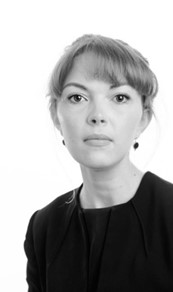 When I attended my interview for the Pegasus Scholarship in early 2021, I did not foresee that the many challenges occasioned by the coronavirus pandemic would continue for so long. One of those very challenges included attempting to manage my diary post lockdown in a climate of ever-changing Crown Court lists. Sadly, the knock-on effect of cases moving with such frequency was inevitably that clashes arose and so my invitation to attend the ECHR in Strasbourg, who only take scholars on specific start dates, became a casualty of Covid.
When I attended my interview for the Pegasus Scholarship in early 2021, I did not foresee that the many challenges occasioned by the coronavirus pandemic would continue for so long. One of those very challenges included attempting to manage my diary post lockdown in a climate of ever-changing Crown Court lists. Sadly, the knock-on effect of cases moving with such frequency was inevitably that clashes arose and so my invitation to attend the ECHR in Strasbourg, who only take scholars on specific start dates, became a casualty of Covid.
Sometime later I was sat in a robing room with my colleague Jamie Scott discussing my disappointment at this turn of events. As former scholar himself he was not prepared to let me miss out on the opportunity and began to set in train various enquiries. Before I knew it the American Inns of Court extended an invitation to visit Washington D.C. this February.
For me, it was too good an opportunity to miss, in particular given my love of “The West Wing” (for those who have not seen this legendary TV series written by Aaron Sorkin, it presents an idealised vision of American politics—in particular of the Democratic party—and in my humble opinion is worth a watch). This combined with an offer to stay in an apartment on Capitol Hill located directly behind the Supreme Court of the United States, literally where the legendary notorious Associate Justice Ruth Bader Ginsburg had once walked, was the icing on the cake.
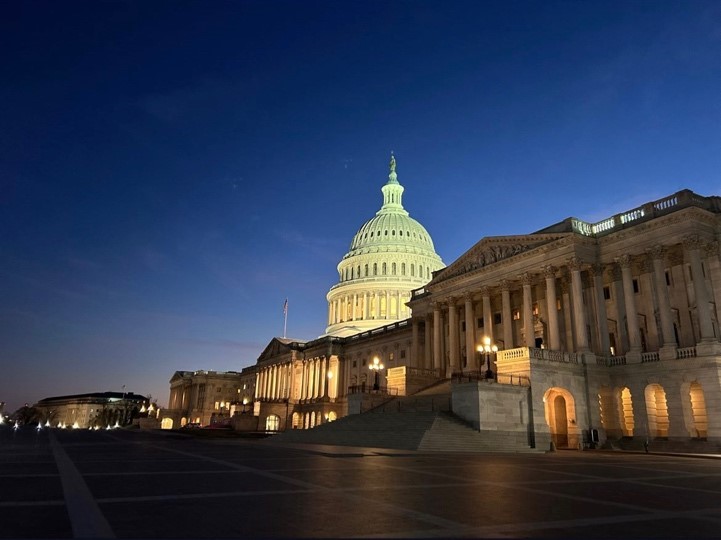 Over the course of the scholarship’s four weeks, I was exposed to all aspects of the American political and legal systems.
Over the course of the scholarship’s four weeks, I was exposed to all aspects of the American political and legal systems.
I attended Supreme Court of the United States to hear oral argument challenging President Biden's student debt relief plan. Essentially, the argument concerned an announcement made in August 2022 which promised that the US government would forgive up to $10,000 in student loan debt for borrowers earning less than $125,000 a year, or $250,000 for married couples. The argument being that for many young people the cost of their college loans becomes a lifelong burden that deprives them of other opportunities. It is worth noting, as was observed during legal argument, that according to the most recent figures the typical undergraduate student now graduates with nearly $25,000 in debt. In a profession such as ours which necessitates post-graduate study that rises rapidly to approximately $165,000, or £135,500.
Listening to the detailed arguments and observing the exchange between the solicitor general and the justices from my mahogany pew was fascinating albeit far more interventionist than I first anticipated. Sitting there watching their interactions reminded me why it is that lawyers in the States place such emphasis on mooting; it is excellent preparation for the real job. Attending court that day was truly a highlight of the trip. My sincere thanks to Jessica Bartlow, Justice Gorsuch’s clerk for organising.
I also had the opportunity whilst there to meet with several of the other justices clerks when taking a tour. My guide—a former clerk to the justices—as well as the current clerks and I were able to touch on the differences between our two legal systems. This, perhaps predictably, set in motion one of many discussions about the merits of wearing a wigs and gowns. Needless to say, they were somewhat taken aback when I robustly defended what is perhaps seen by some outsiders as a rather unusual uniform. I hastened to point out to them that the Solicitor General, Elizabeth Prelogar, had just made her arguments in morning dress!
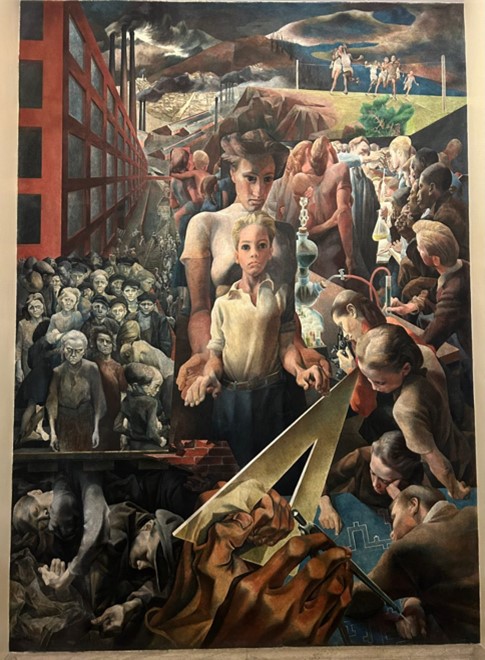 Later that week I also had the privilege of meeting with lawyers at the U.S. Department of Justice and taking a tour of the main building. The department’s building on Pennsylvania Avenue has an exceptional interior steeped in history filled with specially commissioned artwork focused on varied themes all pertaining to the administration of justice. The lobbies, corridors and library all retain the original murals from the 1930s. and the extensive use of al-u-minimum on the fixtures and fittings, including in the library where I was impressed to see Pegasus make an appearance.
Later that week I also had the privilege of meeting with lawyers at the U.S. Department of Justice and taking a tour of the main building. The department’s building on Pennsylvania Avenue has an exceptional interior steeped in history filled with specially commissioned artwork focused on varied themes all pertaining to the administration of justice. The lobbies, corridors and library all retain the original murals from the 1930s. and the extensive use of al-u-minimum on the fixtures and fittings, including in the library where I was impressed to see Pegasus make an appearance.
Interior design to one side, it importantly provided an opportunity to converse with Patrick Holvey (a former U.S. Scholar now intellectual property trial attorney) and discuss not only the Pegasus Scheme at large but also the merits of running a mock trial as is the procedure there. Such trials are nothing like those conducted in our law schools but rather a full-dress rehearsal before a jury selected from the same pool as that empanelled for the trial. The set-up is entirely the same as live proceedings would be and provides lawyers a unique opportunity to test run trial strategy. It is quite unlike anything I have experienced. For many of us the thought of jurors completing surveys assessing our performance would send a shiver down our spines (the Hampel Method is cringeworthy enough) but for those due to either conduct or face trial perhaps an invaluable opportunity to assess the merits of their case and perhaps save themselves further expense.
Aside from those unique opportunities there were also far more sobering experiences in D.C. At the Superior Court I had the opportunity to meet with federal prosecutors and public defenders specialising in child homicide and observed the work of the police force involved in the trial of six men, charged with the gang related murder of 10-year-old, Makiyah Wilson. This trial of alleged members of the Wellington Park crew exposed the many similar challenges our American colleagues face in their attempts to investigate serious crimes and the many cross overs, such as how to encourage young men susceptible to the influence of those with more sophisticated pro-criminal attitudes away from such influences and, on a more practical level, how to best deploy voluminous cell site material in a jury friendly manner.
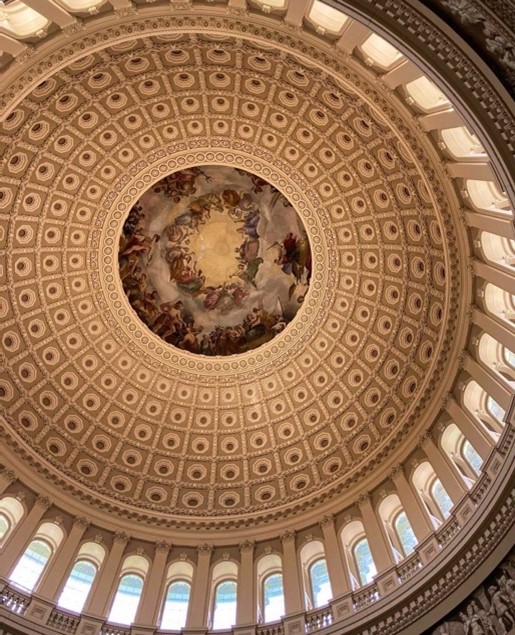 Another ambition of mine whilst here had been to see Congress in action and so my enthusiastic hosts ensured I had that opportunity. I spent the day at the Office of the U.S. representative for Wisconsin, Congresswoman Gwen Moore. The Congresswoman serves a whip of the Congressional Black Caucus and sits on the influential House Committee on Ways and Means.
Another ambition of mine whilst here had been to see Congress in action and so my enthusiastic hosts ensured I had that opportunity. I spent the day at the Office of the U.S. representative for Wisconsin, Congresswoman Gwen Moore. The Congresswoman serves a whip of the Congressional Black Caucus and sits on the influential House Committee on Ways and Means.
I observed debate amongst members of that committee addressing the fraudulent overpayments of unemployment insurance, a benefit provided during the pandemic which sadly was poorly administered resulting in those who could legitimately apply accruing moneys to which they were not entitled. The Biden-Harris administration has encouraged amendments to this bill to avoid particular groups, for example disabled persons and foster carers, becoming penalised through the system proposed to investigate these matters. As you might anticipate this led to some lively interactions in the chamber.
I was also very fortunate to have the chance to observe a vote in the House from the gallery and a tour of the Capitol Building, the seat of Congress where I had a brief reminder of home in the crypt, where a replica of Magna Carta as created by Louis Osman sits, as gifted by the British government to celebrate the bicentennial of American independence.
Back at the Rayburn Building I attended meetings with the Congresswoman’s senior staff and spoke with lobbyists seeking to implement free screenings for prostate cancer amongst those groups disproportionately affected by the disease, and with those seeking to secure debt relief for doctors practising in particular areas of specialist care in rural communities.
That same evening, I attended a fundraising dinner which included several opportunities to further compare our two legal systems, and a chance to observe some contentious debate including that on recent landmark decision to overturn Roe v. Wade.
Many of those I met were fascinated to know whether we in the UK think Donald Trump should run for re-election in 2024. Hoping to offer a diplomatic answer I turned to the memorable words of the former first lady Michelle Obama, suggesting that our American friends should not become “susceptible to voices that want to lead by fear and division.” Unfortunately, that prompted another point of discussion as to the current Home Secretary’s policy concerning refugees crossing the channel. It may be best that I say no more on that topic for now.
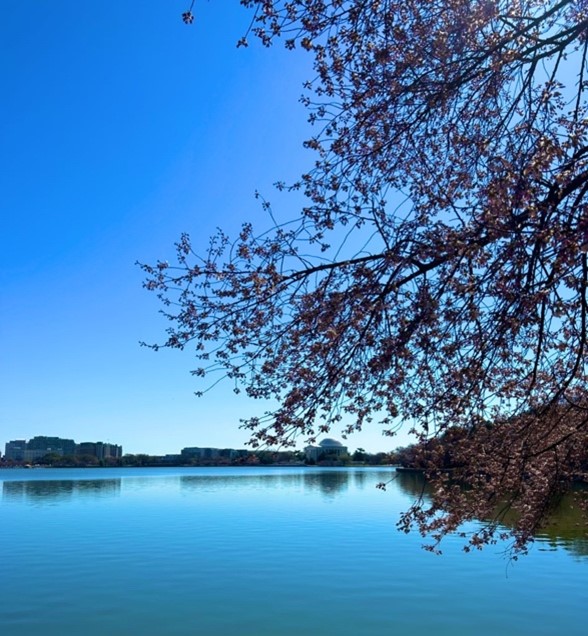 What struck me throughout my other conversations that evening and again later when I met with Judge Erik H. Nyce and Judge Loren L. AliKhan, was the considerable work being undertaken to improve the retention of women and other underrepresented groups within the profession. Contrary to that which is depicted on TV it seems our US colleagues are somewhat further ahead.
What struck me throughout my other conversations that evening and again later when I met with Judge Erik H. Nyce and Judge Loren L. AliKhan, was the considerable work being undertaken to improve the retention of women and other underrepresented groups within the profession. Contrary to that which is depicted on TV it seems our US colleagues are somewhat further ahead.
In my own field, although the number of women who join the criminal bar is broadly the same as the men, the number who leave is far greater and as we know the knock on effect is that there are disproportionately more men than women at the top level. Of my own intake of pupils, all based in London in 2016 there are now just 3 of us women left practising crime full-time at the independent bar. A depressing reality. Rather than accept this situation it seems that the profession overseas has woken up and begun listening to women, asking them what they both want and need. Advocates have an opportunity to provide input as to when cases are listed, Judges firmly sit set hours, making it seems many accommodations to ensure that caring commitments are not compromised, and many firms and the government alike provide means-tested, flexible childcare options. As I sat and listed to both judges it struck me that many of the solutions incorporated by our American colleagues could so easily be replicated here if those making these decisions would seek our input.
Outside of the U.S. Capitol I met with senior military lawyers, public defenders, public interest organisations, and corporate counsel in Virginia and Maryland. Throughout those meetings those I met constantly sought to compare our two legal systems with two common themes emerging, why do we not select our juries in the UK and how is it that our judiciary remains independent from politics? The absence of jury selection delighted many of the judges I met, who perceive the “voir dire” selection process as arduous. Having seen it in action during a death penalty trial in Texas some years ago I am inclined to agree. However, the very thought of there being an absence of ability to select jurors in this way filled every trial advocate I met with a sense of horror. As for electing Judges, let’s just say my hosts and I did not always share the same opinion.
In Annapolis, I attended senate hearings with Kimberley Fullerton advocating on animal rights issues and had an opportunity to witness first-hand the movement of a bill between the committees. Kimberley and I also enjoyed an afternoon watching dockets before Judge Kenneth A. Talley, witnessing first-hand the exceptional level of representation offered by the often overworked and underpaid public defender service. What followed that evening was my first beer-garita, a Budweiser combined with a frozen margarita a unique experience, I’m told a Charles County tradition. Perhaps one I won’t repeat.
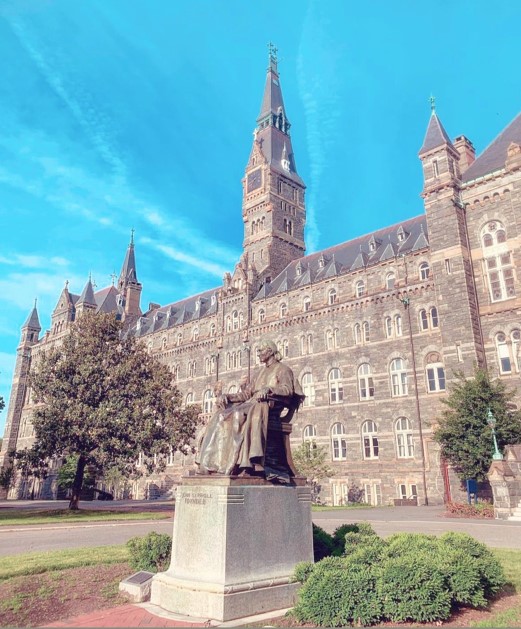 I was also extremely fortunate back in Washington to dip my toes back in academic waters and attend Georgetown University, the oldest Catholic and Jesuit institution in the country. The focus of the class I attended was on student’s research examining the death penalty as a violation of fundamental human rights ahead of an upcoming moot. As you may imagine some of that class’s lively debate drew on the then Pope (now Saint John Paul II’s) decision to reject the practice entirely and the work of several, influential academics who grace the university’s halls, including the long-time human rights lawyer, Diann Rust-Tierney.
I was also extremely fortunate back in Washington to dip my toes back in academic waters and attend Georgetown University, the oldest Catholic and Jesuit institution in the country. The focus of the class I attended was on student’s research examining the death penalty as a violation of fundamental human rights ahead of an upcoming moot. As you may imagine some of that class’s lively debate drew on the then Pope (now Saint John Paul II’s) decision to reject the practice entirely and the work of several, influential academics who grace the university’s halls, including the long-time human rights lawyer, Diann Rust-Tierney.
In addition, I had an opportunity to spend a day at Howard University School of Law observing the work of Professor Sha-Shana Crichton. I sat in on her legal writing class which focused on student’s assignment to produce a brief concentrated on a dispute over a Facebook profile created by a senator, in her capacity as a government employee, to better communicate with her constituents. This profile was argued by the plaintiff, a constituent who had been “blocked” by the defendant, to have violated her First Amendment rights in that she had been censored from expressing her opinion and in particular in relation to a debate concerning access to abortion. What struck me in attending the class was the focus on written advocacy compared with our own system which so often concentrates on oral advocacy.
In addition to attending classes, I met with Professor Kacey Mordecai, a specialist in juvenile law, and discussed her work to improve national policy and practice for children in the foster care system.
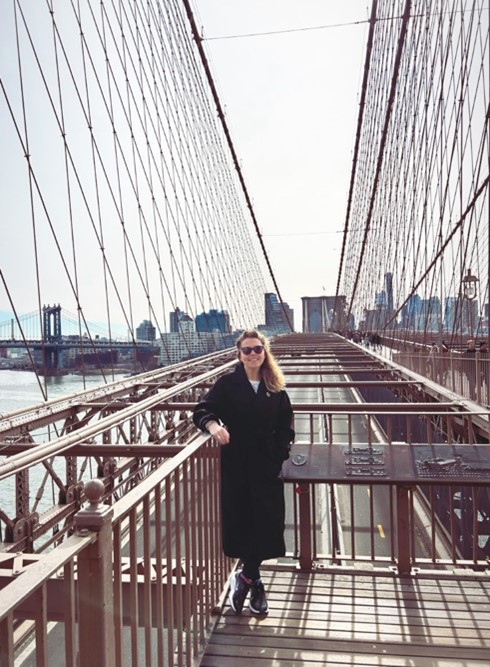 Later that day I attended the Thurgood Marshall Centre and observed their work to encourage excellent amongst the next generation of African American lawyers, including the recently established Movement Lawyering Clinic which mentor’s student’s advocating on behalf of clients and communities fighting for the realisation of the civil and human rights guarantees promised by the U.S. Constitution.
Later that day I attended the Thurgood Marshall Centre and observed their work to encourage excellent amongst the next generation of African American lawyers, including the recently established Movement Lawyering Clinic which mentor’s student’s advocating on behalf of clients and communities fighting for the realisation of the civil and human rights guarantees promised by the U.S. Constitution.
I also visited New York where I was able to connect with Jonathan Schaffer-Goddard, who is now based in the Big Apple. We reminisced over our experiences in pupillage and I learned about his experience of dual-qualified practice in the United States. Those early experiences before the courts seemed a distant memory as we looked out over the Manhattan skyline.
Although law and the practice of it was at the heart of the scholarship, there was plenty of time to explore all that Washington has to offer, from the neo-Gothic stained glass of the National Cathedral to identifying the best sites to observe the emerging cherry blossom in anticipation of the annual festival, and of course spending Sunday mornings at the beloved Eastern Market sampling the famous blueberry pancakes. The same was true of New York, where I am sure I hit all the marks to be a perfect cliché in Central Park eating, what I am now certain, was the best cheesecake in the city.
Having now returned home I look back on my Pegasus Scholarship as an exceptional experience. It provided me with a unique insight into the American legal system and an important opportunity to pause and reflect on my career thus far. Perhaps more importantly though it provided me an opportunity to refocus my mind on where I hope to be and importantly showed how we as a profession might move to ensure that some of the systemic problems we face in recruitment and retention might be improved.
In closing, I would like to thank Inner Temple and the Pegasus Trust Committee for their generosity. Special thanks also to Cindy Dennis at the American Inns of Court, Cynthia Wright, Don Haddock, Eric Nitz, Erik Nyce, Jay Myerson, Loren AliKhan, Kimberley Fullerton, Richard Gardiner, Ron Stern, Sean Gardner, Sha-Shana Crichton, and Will Stone, who all put together an excellent program for me.
Chloe Ashley is a specialist criminal barrister based at No5 Chambers, Birmingham, UK. Chloe both defends and prosecutes in equal measure. Her cases vary in size and complexity across all areas of crime. Her work this past year has encompassed the full range of criminal offences: organised crime including, human trafficking and modern-day slavery cases; child cruelty and ‘baby shakings’; serious sexual offences, including rape; fatal driving offences and other matters of violence, including gang-related homicides. She has a particular interest in complex pathological cases and in the field of child homicide.
Before joining the Bar, Chloe worked in the fields of human rights and legal policy, including for Reprieve and Texas Defender Service, where her work focused on representing individuals facing the death penalty. She also has considerable experience working for organisations promoting women’s rights, including Rape Crisis. As a result of those experiences, Chloe has developed particular expertise in issues relating to mental health and intellectual disability and is often counsel of choice for solicitors defending those who are acutely vulnerable. She also retains a special interest in the representation of women in the criminal justice system.
In 2019 Chloe was nominated for the First 100 Years, Inspirational Women in Law Awards (under 35 category).
Chloe read Philosophy (BA Hons) at Sheffield University, she went on to complete her conversion to law in Birmingham and completed the Bar Professional Training Course in Bristol. Her post-graduate education was supported by a Major Exhibition Award and Duke of Edinburgh Award from the Inner Temple. Her pupillage in London was partly funded by the Inner Temple awarding her a Rachel Lawrence Scholarship.
Chloe comes from a modest background. This informs her passionate advocacy for issues concerning equality, justice, diversity and social mobility. Over the years she has always been fully involved in various committees focusing on gender and social mobility issues at the bar and the wider legal profession. Chloe is also committed to undertaking pro bono instructions and does so as a panel member of the Bar Pro Bono Unit and for other charities, including Barnardos. More recently she has become an advisor for a special project in the UK offering free help and support to Ukrainians seeking refuge in the UK in the wake of the Russian invasion.